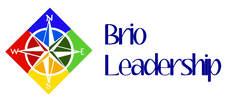 Culture is the very soul of a company. It manifests in the way people (insiders and external suppliers) are treated, the way decisions are made, and the behavioral norms that may be unspoken but expected. Culture is the result of how an organization embodies its core values, and it consequently becomes the company’s collective world view. Walter Robb, Co-CEO of Whole Foods Market, says that culture is “the actual practice of those [core] values over time.” i Culture is intangible but vitally important. According to James Heskett of Harvard Business School, “Culture can account for up to half of the difference in operating profit between two organizations in the same business.” ii Because it has to do with how people, especially employees, are treated, the ramifications of culture pervade all aspects of a business. The productivity, engagement, innovation, and energy of your workforce are a result of the working environment that leaders build. Conscious Culture is one of four tenets of Conscious Capitalism, which we have covered in a previous article. The Conscious Capitalism movement is one of the most exciting developments in business practices in the 21st century, and it deserves the attention of family-owned businesses, many of which are deeply values-driven. Here are five steps to building a conscious culture in your organization: Core Values: Have you identified your family-owned business' core values? If not, now is a very good time to start work on this. If you have, have you given them any thought or tested them for accuracy? Too many times, companies spend time and money creating mission, vision, and values statements and then put them on a shelf to collect dust. Conscious companies are continually living, breathing, walking, and talking their core values. They hire new employees for their alignment with the values; they terminate people who cannot live up to them. They tell stories about the values. They look for ways to recognize employees and promote managers who can live the values. The most common values seen in conscious cultures include trust, accountability, excellence, fun, compassion, integrity, fairness, and transparency. Accountability is an important value because it might be counter-intuitive in talking about culture. Don’t be tempted to think that Conscious Capitalism is soft or mamby-pamby. To build a conscious culture, you have to be tough enough to hold all people accountable to both the values and task expectations you have of them. My mother used to call this “tough love” – a loving way to spare no one from the natural consequences of their actions. I’ve seen some great companies ruin their culture by tolerating poor performance in their favorite workers and insulating them from consequences. Don’t get me wrong – I espouse compassion for episodic life events that can derail someone’s effectiveness for a short time, but established patterns of low productivity or destructive behaviors should be dealt with fairly. Brio Leadership recommends that, in a family business, you start by identifying the values of the family. Start by asking, what values does this family stand for? Then the family can highlight the most important values that the business should adopt. Hiring and Firing Conscious cultures hire for their values. In every job interview, the interviewer presents the company’s core values to the job candidate and asks behaviorally-based questions to ascertain the individual’s alignment with the company’s ideals. This alignment predicts in large part the person’s happiness and performance in the job. Many of my coaching clients discover that the root cause of their unhappiness in their job is a gross misalignment of their personal core values to those of the company. A values clash does no one – not the company, the customers or the prospective employee – any favors. Fail early – find out in the interview if this person will fit in culturally. The opposite is also true. Conscious family-owned companies must compassionately terminate employees when they no longer live up to core values or have the skill set for the changing marketplace. Netflix, in its slide deck called “Netflix Culture: Freedom & Responsibility”, describes how the company “hires, develops and cuts smartly, so we have stars in every position.” If a team member’s performance is merely adequate, Netflix offers them a generous severance package to leave the company. Compensation/recognition A compensation program is a powerful communicator of core values. If the company’s compensation structure is not aligned with the espoused values, then the values are wishful thinking only, not a way of life. Strictly speaking: money talks. Some questions to determine the “consciousness” of your compensation structure are:
These are criteria that conscious family businesses attend to. Storytelling Storytelling is one of the best methods of translating values to a group. Our ancestors and families told stories to define their identities and pass on aspirations and traits to the next generation. Storytelling is one of the most powerful teaching methods. While enrolled in a public speaking class, I learned to communicate a powerful message and emphasize a specific point by telling a story – repeatedly. Human beings love stories, much more so than boring lectures, and this love of storytelling exists even in the workplace. One leadership team I worked with decided to come up with 3-4 stories from their experience that illustrated each of their seven core values in action. They were stories of exemplary customer service, outstanding problem solving, pitching in to help, and having fun as a team. Some companies also feel compelled to include stories in their newsletter of employees living the values. However, beware of telling negative stories. One company repeatedly told the story of how a partner was unexpectedly called on the morning of her wedding to join a conference call with a client. And she did! What this story tells me is the company puts no value on work/life balance or on respecting employee’s family time. Don’t perpetuate those stories! Not only that, but do actively work to change behavioral norms that demand that kind of sacrifice. Leadership behavior Conscious family-owned companies recognize that the culture is a result of how the leadership team behaves. Leaders are the behavioral role models for the rest of the company. The quickest way to make a mockery of core values is to not hold executives and managers accountable to living them. At Caterpillar, a poorly-performing division drafted nine new Common Values and defined the behaviors that upheld them. Executives courageously decided that of the 24 current managers, 22 could not make behavioral changes to act in alignment with the values. The 22 old-style managers were let go. iii This was the keystone to their cultural change and, ultimately, to the survival of the division. Leadership is a difficult and complex job. Leaders in today’s marketplace must possess intellectual, emotional, and spiritual intelligence and an understanding of systems theory. They must have self-awareness of their tendencies and habitual emotional reactions, they must have the ability to scan a room for its mood, and they must have empathy and compassion for their teams. They must be able to see an organization as a system in which everything is connected and the sum is greater than the parts. Lastly, they must have a long-term and holistic perspective of the decisions they make in order to account for all stakeholders of the organization. Choose your leaders well, develop them through mentoring and executive coaching, and demand that they walk the values they talk. Human beings are a company’s most precious asset. A positive culture will bring out the best in people and provide the family-owned company with high productivity, lower costs, higher revenues, and greater contributions to society. i J. Mackey & R. Sisodia, 2014, Conscious Capitalism: Liberating the Heroic Spirit of Business. Boston: Harvard Business Review Press. P. 218. ii J. Mackey & R. Sisodia, 2014, Conscious Capitalism: Liberating the Heroic Spirit of Business. Boston: Harvard Business Review Press. P. 217 iii J. Despain, L.M. Leinicke, J.A. Ostrosky & W.M. Rexroad, “Work values at Caterpillar: A process,” Organizational Dynamics, Volume 32, #4, 2003, pp. 405-414. Kristin Robertson, CEO of Brio Leadership, is dedicated to increasing the number of employees who are excited to go to work on Monday mornings. Services include executive coaching, leadership development classes and company culture consulting. Don’t forget to get a copy of Kristin Robertson’s new book, Your Company Culture Ecosystem, available on Amazon.
1 Comment
|
From the desk of
|
Our services |
Our Company |

 RSS Feed
RSS Feed

